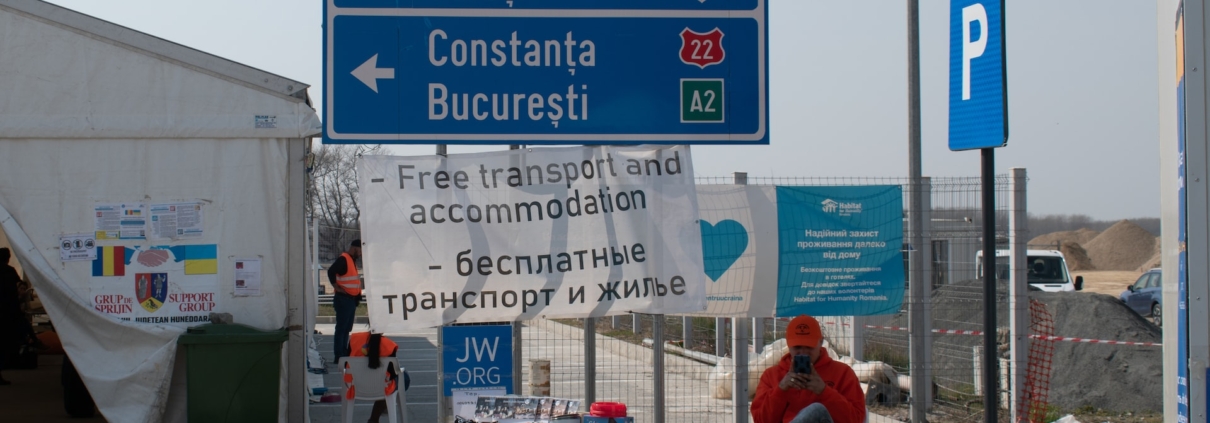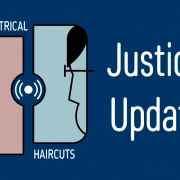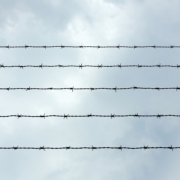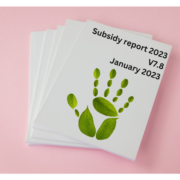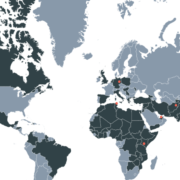“Listening to refugees is key towards designing solutions that will most directly meet their needs”: Upinion and the Norwegian Refugee Council combine for insightful research into displaced Ukrainian people’s lives
By Thomas Ansell
Upinion, the online research platform intended to help aid actors to engage with people, and a Humanity Hub member organisation, has recently released a report looking into the lives of displaced Ukrainian people living in Poland, Romania, and the Republic of Moldova. The research looks into the experiences of these people during their first 12 months of being displaced: including how they were received, their living and working situations, and the difficulties that have faced.
A unique methodology and approach
The report was commissioned by the Norwegian Refugee Council, and used an online conversation to speak to over 1,471 people. “The results of these conversations show the reality of increasing hardships for Ukrainians, the difficulty to make ends meet, and the realities of war, yet also nuanced opinions on adapting to a new and strange (and temporary) country”, says Noor Lekkerkerker, Upinion.
Upinion utilised its unique approach to put together this research; approaching the project more as a dialogue rather than a study. The organisation tries to attract people to take part in its research by conducting outreach via social media (the people are then guided towards a secure online environment that is safe for them to express their opinion). This online platform then allows the Upinion team to share knowledge, make the conversation two ways, and also direct respondents to useful links and information.
‘Incredible solidarity’, Inconsistent accommodation and lack of opportunities
The Upinion report refers to the ‘incredible hosting solidarity’ shown by the host nations analysed, within the context of ‘ongoing trauma, family separation, and long-term needs’: 89% of respondents across the three host countries report feeling ‘safe and accepted’ by their host country. One respondent quoted in the report; a woman aged 25-35 living in Pomerania in Poland said: “there is a friendly attitude from the Poles, and their government. In fact, Ukrainians were equated with Polish citizens in terms of rights and social support. It’s very nice, I feel safe, and that’s the main thing.”
When it comes to accommodation of refugees, the report notes that rising inflation and rent prices (especially in Poland) may result in some refugees choosing to resettle in countries with lower costs of living in the future. Indeed, Upinion’s data shows that the cost of living was a major contributor to many people’s decisions to shelter in Moldova or Romania instead of other European countries.
Data from the surveys also suggest that a majority (68%) of people are finding current income and support to be inadequate for meeting their immediate needs. There is some variation between countries: a majority of respondents living in Poland said that their main source of income was paid work, with people in Moldova and Romania being more likely to rely on either personal savings or humanitarian assistance to fund their living costs. This is, as Noor points out, not sustainable for most people, which is causing significant feelings of unease amongst many displaced people.
Moreover, having access to work does not necessarily result in a sufficient income. One female respondent living in Lower Silesia in Poland said that: “there are low wages for Ukrainians. I work 12 hours a day, it is only enough to pay for housing, a minimum amount remains for food. It’s hard for a mother with a child.”
Roma people have had far worse experiences
One of the more worrying trends to come from Upinion’s research is that people with an ethnic Roma background have faced much less supportive conditions compared to other ethnic groups. In Moldova, for example, 64% of Roma respondents noted that their children have not attended school since leaving Ukraine.
Across all three countries, people with a Roma background reported significant problems with meeting their basic needs: 94% reported being unable to afford these needs, whilst 6% preferred not to answer the question. Furthermore, obtaining legal documentation seems to have been more difficult for people with a Roma background: 92% of respondents in Moldova reported difficulties obtaining official documents.
Policy suggestions
The Upinion and NRC report also makes several policy representations off the back of their research: suggesting that the EU supports its member states to fulfil commitments on the provision or rights as detailed in the Temporary Protection Directive, and that host countries in general work to provide adequate income, housing, and education for their refugee populations. Another point of action for host governments is to focus more on social and economic inclusion: and to create special provisions to not means-test access to government benefits for refugees.
The full text of the report is available on the Upinion website.

